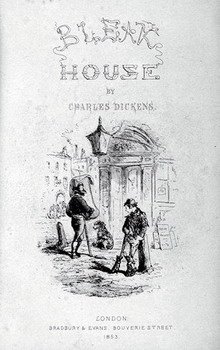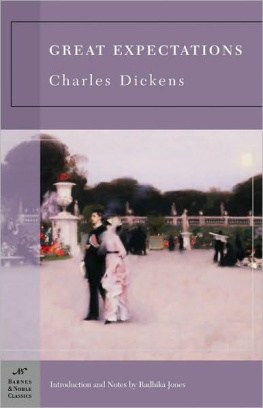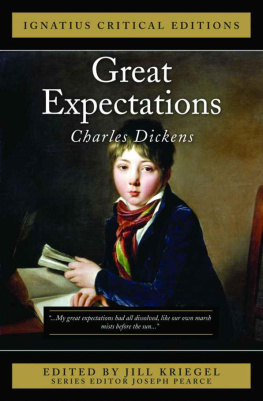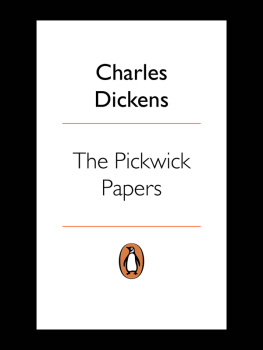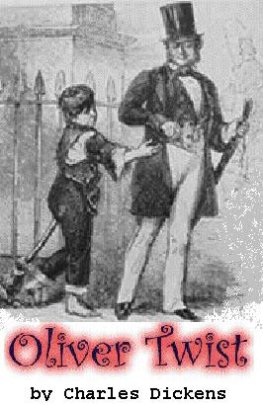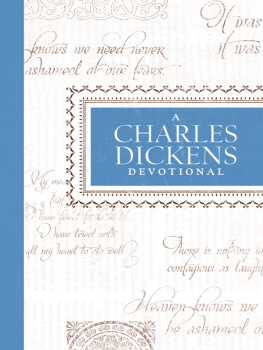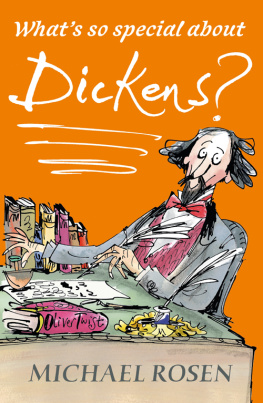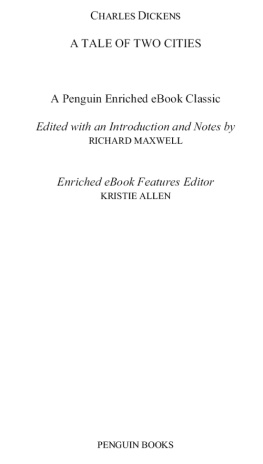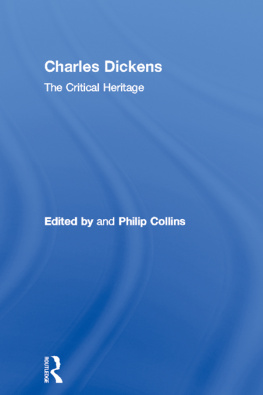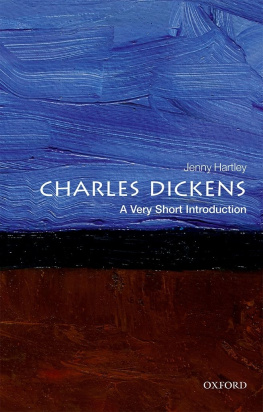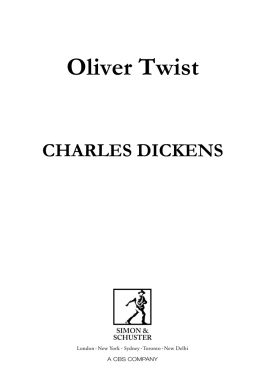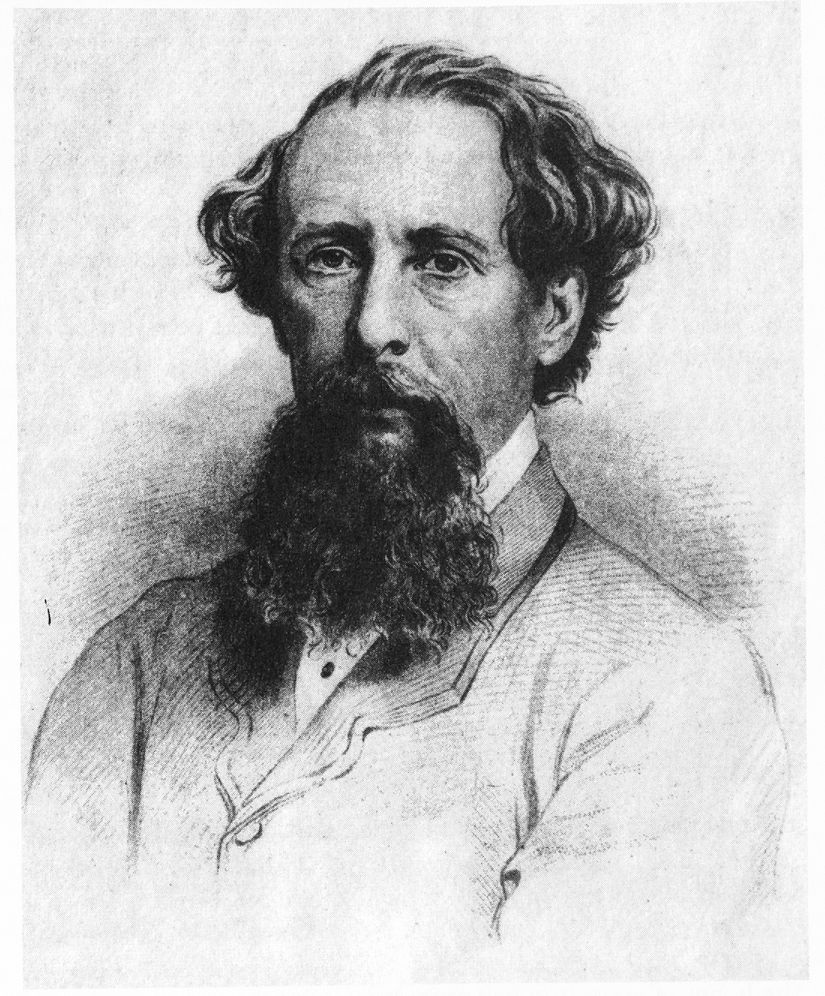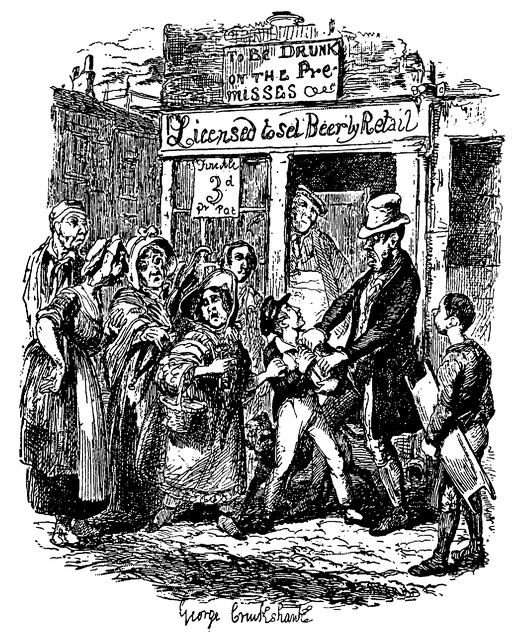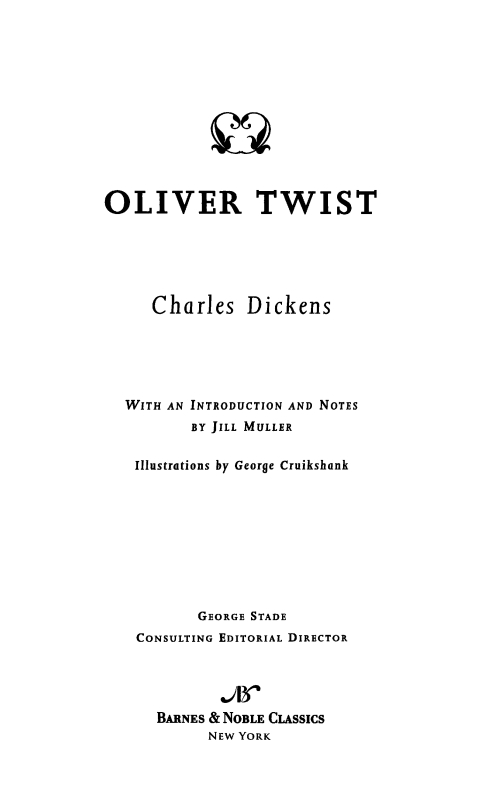
Table of Contents
FROM THE PAGES OF OLIVER TWIST
Please, sir, I want some more.
(page 39)
He was, altogether, as roystering and swaggering a young gentleman as ever stood four feet six, or something less.
(page 83)
Having prepared his mind, by solitude and gloom, to prefer any society to the companionship of his own sad thoughts in such a dreary place, he was now slowly instilling into his soul the poison which he hoped would blacken it, and change its hue for ever.
(page 170)
It was a night for the well-housed and fed to draw round the bright fire and thank God they were at home; and for the homeless, starving wretch to lay him down and die.
(page 201)
We have none of us long to wait for Death. Patience, patience! Hell be here soon enough for us all.
(page 210)
Men who look on nature, and their fellow-men, and cry that all is dark and gloomy, are in the right; but the sombre colours are reflections from their own jaundiced eyes and hearts. The real hues are delicate, and need a clearer vision.
(page 295)
Joy and grief were mingled in the cup; but there were no bitter tears: for even grief itself arose so softened, and clothed in such sweet and tender recollections, that it became a solemn pleasure, and lost all character of pain.
(page 450)
The boom of every iron bell came laden with the one, deep, hollow soundDeath.
(page 456)
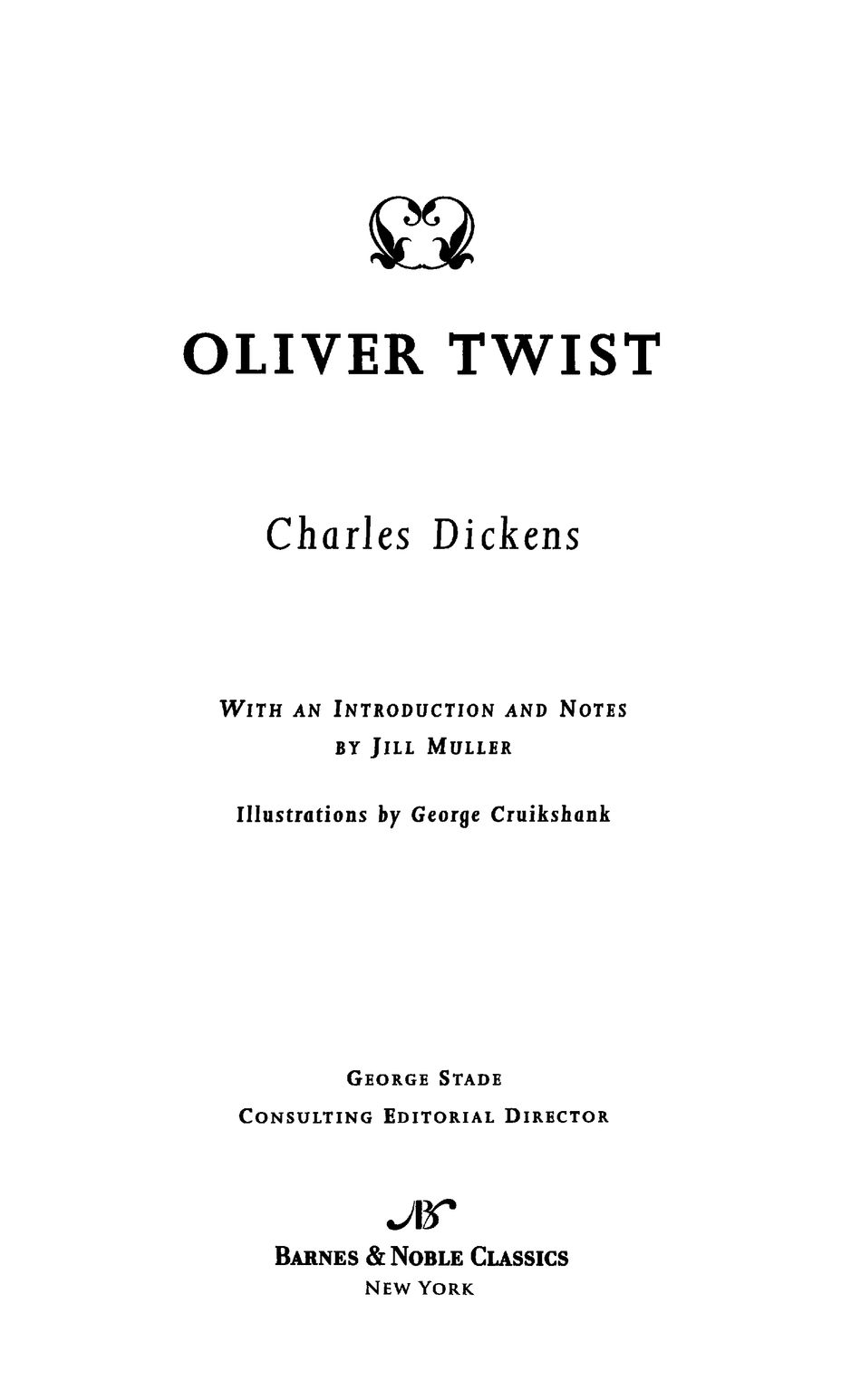
CHARLES DICKENS
Born on February 7, 1812, Charles Dickens was the second of eight children in a family burdened with financial troubles. Despite difficult early years, he became the most successful British writer of the Victorian age.
In 1824, young Charles was withdrawn from school and forced to work at a boot-blacking factory when his improvident father, accompanied by his mother and siblings, was sentenced to three months in a debtors prison. Once they were released, Charles attended a private school for three years. The young man then became a solicitors clerk, mastered shorthand, and before long was employed as a Parliamentary reporter. When he was in his early twenties, Dickens began to publish stories and sketches of London life in a variety of periodicals.
It was the publication of Pickwick Papers (1836-1837) that catapulted the twenty-five-year-old author to national renown. Dickens wrote with unequaled speed and often worked on several novels at a time, publishing them first in monthly installments and then as books. His early novels Oliver Twist (18371838), Nicholas Nickleby (1838-1839), The Old Curiosity Shop (1840-1841), and A Christmas Carol (1843) solidified his enormous, ongoing popularity. As Dickens matured, his social criticism became increasingly biting, his humor dark, and his view of poverty darker still. David Copperfield (1849-1850), Bleak House (1852-1853), Hard Times (1854), A Tale of Two Cities (1859), Great Expectations (1860-1861), and Our Mutual Friend (1864-1865) are the great works of his masterful and prolific later period.
In 1858 Dickenss twenty-three-year marriage to Catherine Hogarth dissolved when he fell in love with Ellen Ternan, a young actress. The last years of his life were filled with intense activity: writing, managing amateur theatricals, and undertaking several reading tours that reinforced the publics favorable view of his work but took an enormous toll on his health. Working feverishly to the last, Dickens collapsed and died on June 9, 1870, leaving The Mystery of Edwin Drood uncompleted.
Oliver claimed by his Affectionate Friends
THE WORLD OF CHARLES DICKENS AND OLIVER TWIST
| 1811 | Jane Austen publishes Sense and Sensibility, arguably the first modern English novel. |
| 1812 | Charles John Huffam Dickens is born at Portsmouth to John and Elizabeth (nee Barrow) Dickens. The government orders a group of Luddites, an organized band of laborers opposed to the industrialized machinery that threatens to replace them, to be shot down. |
| 1817 | The Dickens family moves to Chatham, in Kent. Dickens be gins reading the books in his fathers library; his favorites include the works of Miguel de Cervantes, Daniel Defoe, Henry Fielding, and Tobias Smollett. |
| 1822 | The Dickens family moves again, this time to Camden, in North London. Dickens quickly and fastidiously learns the landscape of London, an invaluable resource for his later writing. |
| 1824 | Charles is sent to work at Warrens Blacking Factory, a manufacturer of boot-blacking. His father is arrested for debt and imprisoned for three months, and while the rest of the family stays with John Dickens in prison, Charles lodges elsewhere and continues pasting labels onto bottles of blacking at Warrens. |
| 1825 | John Dickens retires on a naval pension, and Charles attends Wellington House Academy, a private school where he wins a prize in Latin. |
| 1827 | Dickens becomes a clerk in a solicitors office. |
| 1829 | After learning shorthand, he establishes himself as a reporter for the law courts, Parliament, and various London newspapers. He meets Maria Beadnell and falls in love with her. |
| 1831 | Dickens joins the journalistic staff of the Mirror of Parliament: he transcribes speeches by the members of Parliament on such topics as factory conditions, penal reform, education reform, the Poor Law Commission, and the First Reform Bill of 1832. |
| 1833 | After four arduous years, Dickenss affair with Beadnell dissolves in the face of her familys disapproval. He publishes his first story, A Dinner at Poplar Walk, in the Monthly Magazine. The British Parliament passes the Factory Act, which regulates child labor and forces children to attend school until age thirteen. |
| 1834 | Dickens becomes a journalist for the Morning Chronicle, a job that requires frequent travel and attendance at political meetings. He continues to publish stories and sketches in periodicals. The Poor Law Amendment Act ends out-of-door relief (aid given to the poor in their own homes) and compels those in need of assistance to enter workhouses, where conditions are very harsh. |
| 1835 | Dickens becomes engaged to Catherine Hogarth, the daughter of George Hogarth, editor of the Evening Chronicle. |
| 1836 | Dickens writes in several different genres and achieves significant literary success. Adopting the pseudonym Boz, based on his pronunciation as a young child of Moses as Boses, Dickens publishes in volume form Sketches by Boz, a collection of his earlier writings. He marries Catherine Hogarth; the couple eventually has ten children. Dickens becomes intensely and unceasingly prolific, continuing to write feverishly throughout his life. Pickwick Papers, |



